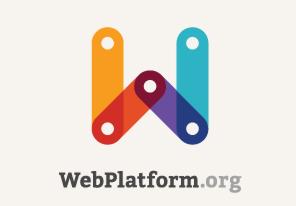| Web Platform Docs - A Unified Resource for Web Developers |
| Written by Ian Elliot | |||
| Tuesday, 09 October 2012 | |||
|
Web Platform Docs is a new W3C hosted community resource for developers and designers who use open Web standards. Currently in Alpha it already has a wealth of material and is now asking volunteers to add more.
The motivation for providing such a site is explained on the Google Developer's blog: When you want to build something for the web, it's surprisingly difficult to find out how you can implement your vision across all browsers and operating systems. You often need to search across various websites and blogs to learn how certain technologies can be used. It's kind of like a scavenger hunt, except it's not any fun. This is further explained in this introductory video which concludes with Tim Berners-Lee asking developers to join in to make the site "the best" for building web pages.
The Web Patform Docs (WPD) is envisaged as a community-driven wiki where, according to Tim Berners-Lee, who is Director of W3C as well as the acknowleded inventor of the World Wide Web "all of us who are passionate about the web can share knowledge and help one another" The initial WPD material has been contributed by Web Platform Stewards, ten organizations that have supported its formation with content and funding:
(The mising logo from this list is that of Apple which tops the alphbetical list of stewards.) These stewards, and newly appointed ones, will continue to support it. According to Opera, "While the site is a wiki, it has funding and staff on hand to monitor and maintain its content, which means that the information it contains will remain accurate and up to date." Thanks to a "massive import of data from Microsoft, Opera, Google, Facebook, Mozilla, Nokia, Adobe, and W3C there already is a lot of content on WPD. This is arranged in six sections some of which have a lot of content, including a full Web development for beginners course from W3C. However, as you drill down you quickly come to areas where you are asked to contribute to the project and this is something that anyone with an account and validated e-mail address can do. The site has a Getting Started Guide, complete with a flow chart and lists of tasks that suit time frames of 5 minutes If you want to know more about , you should consult a document with the title "Pillars" that explains that the site is founded on three principles - pragmatism, inclusion and consensus. Other components of the site are a Question and Answer forum that already seems fairly lively, a live Chat room and a Blog which currently has one post that describes what is envisaged: WebPlatform.org will have accurate, up-to-date, comprehensive references and tutorials for every part of client-side development and design, with quirks and bugs revealed and explained. It will have in-depth indicators of browser support and interoperability, with links to tests for specific features. It will feature discussions and script libraries for cutting-edge features at various states of implementation or standardization, with the opportunity to give feedback into the process before the features are locked down. It will have features to let you experiment with and share code snippets, examples, and solutions. It will have an API to access the structured information for easy reuse. It will have resources for teachers to help them train their students with critical skills. It will have information you just can’t get anywhere else, and it will have it all in one place. WebPlatform.org promises to embody the best of the web and it is to be hoped that it lives up to Tim Berners-Lee's aspiration that together developers can make it the best resource for web development.
More InformationRelated ArticlesW3C Announce HTML5 To Be Ready Nearly A Decade Early Microsoft Picks Another Web Standards Fight HTML5 Standardization Gains Sponsorship Which HTML5? - WHATWG and W3C Split
Comments
or email your comment to: comments@i-programmer.info
To be informed about new articles on I Programmer, install the I Programmer Toolbar, subscribe to the RSS feed, follow us on, Twitter, Facebook, Google+ or Linkedin, or sign up for our weekly newsletter.
|
|||
| Last Updated ( Tuesday, 09 October 2012 ) |



